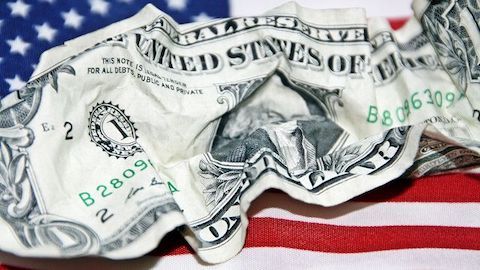
First Response
There have been several developments in the past 24 hours in the continuing story of direct payments for Americans. When we last left you, Donald Trump had blown up an already-passed deal by saying the payments were “ridiculously low.” Democrats immediately took him up on the offer to expand payments to $2,000. The House planned to come in Christmas Eve to request unanimous consent to quickly pass the bill, without hundreds of members having to get back on planes and risk their health (and more important those they come in contact with, because while many are vaccinated there’s still a risk of shedding the disease).
This morning, the House Ways and Means Committee introduced the Caring for Americans with Supplemental Help (CASH) Act, a two-page bill that just increases the direct payments from $600 to $2,000. (My money was on the DOLLAR Act, but such is life.) Steny Hoyer, the House Majority Leader from nearby Maryland, asked unanimous consent to pass it in the House. And Republicans, as promised, denied unanimous consent, leaving the bill unpassed.
Speaker Pelosi immediately released a statement chastising Republicans for not allowing the bill to advance. More important, she said this: “On Monday, I will bring the House back to session where we will hold a recorded vote on our stand-alone bill to increase economic impact payments to $2,000…Hopefully by then the President will have already signed the bipartisan and bicameral legislation to keep government open and to deliver coronavirus relief.”
A few things to keep in mind. First, the House was going to come back into session anyway. Yesterday President Trump vetoed the defense authorization bill that had overwhelming bipartisan support, and Pelosi had already announced the House would return to override that veto.
Second, two unemployment programs that approximately 14 million people are using right now expire on Saturday unless Trump signs the COVID relief bill. That’s why Pelosi is begging him to do so. Furthermore, an eviction moratorium extended in the bill expires New Year’s Eve. Guaranteed sick leave expires that day too. Consumer spending has begun to fall and the economy is in a fragile state. Millions of increasingly desperate people’s financial lives are on the line.
In addition, the COVID bill is tied to an omnibus spending bill to keep government running. Right now government funding expires on Monday, and will shut down if Trump doesn’t sign the bill. There’s likely going to be a third vote on Monday on a continuing resolution to fund the government, perhaps through the end of this Congress. There’s total confusion over what Trump is willing to sign, or not.
The implications of Trump’s rejection of the relief bill are catastrophic. The political implications for Republicans are similarly so. While Trump literally raises money off his demands for the bill, the House will pass the CASH Act on Monday. At that point, Mitch McConnell will be standing between Americans and an extra $1,400 of survival money, on Christmas week, during a raging pandemic, with two of his incumbents up for election in Georgia on January 5.
David Perdue is literally running an ad in the state touting his support of the COVID relief bill that Trump trashed as a disgrace. If Perdue and Loeffler were getting hammered before, their party’s roadblock to relief is even more conspicuous now. Even for low-information voters, that check that might have gotten to them by Election Day won’t get there now.
So what does McConnell do? He can ignore the bill, and risk losing his Senate majority. He can put it on the floor, release Perdue and Loeffler to come back and vote for it, and hold back the rest of his caucus, which would be unpredictable and wouldn’t solve the problem; Republicans would still be seen as Scrooges. He could allow the bill to pass to save his majority, which would go against his instincts of kneecapping the Biden economy.
This has the GOP in complete disarray, and Democrats looking like savvy operators taking advantage of a huge bungle. It’s hard to process.
Vaccination Watch
After a concerted media effort to create a story out of the Trump administration denying the receipt of additional vaccine doses from Pfizer, the two sides reached agreement on a deal for 100 million additional doses by the end of July. This deal was probably available sooner and would have meant more front-loaded doses. I believe this guarantees doses for 200 million people from the two approved vaccines, and if the AstraZeneca vaccine gets approved that’s another 150 million. Johnson & Johnson is also close, with 100 million guaranteed. If either one of them is approved that’s pretty much all we’ll need.
In exchange for the purchase order, the government has agreed to help Pfizer procure key ingredients used in the vaccine. This will require use of the Defense Production Act, to require manufacturers to make the ingredients Pfizer needs. This is urgently needed. The U.S. vaccinated 1 million Americans in the first 10 days since Pfizer’s vaccine was approved. We need much more than 1 million every day to reach herd immunity. (The best vaccine tracker is here.) Every possible resource needs to be thrown into increasing the pace of vaccination. It’s the best public health and economic solution we’ve got.
Days Without a Bailout Oversight Chair
272. The confusion over the COVID relief bill could yet save this segment for a little while!
Today I Learned
- Case growth is no longer increasing and about half the states are seeing falling numbers across the board. Distancing is working. (COVID Tracking Project)
- And yet, here comes holiday travel to completely ruin all that work. (Associated Press)
- Excess deaths show about 400,000 in 2020, directly or indirectly related to COVID. (Talking Points Memo)
- Part of the Pfizer deal should have been mandatory global access through eliminating patent protections. (Jacobin)
- Private equity deals are now at a post-crisis high. (Financial Times)
- Why is California surging, despite relatively better winter weather than the rest of the nation? (Politico)
- Why antibody treatments are going unused. (New York Times)
- Breaking down the UK variant of the virus. (Science)
- The pandemic is making holiday hams scarce. (Wall Street Journal)




